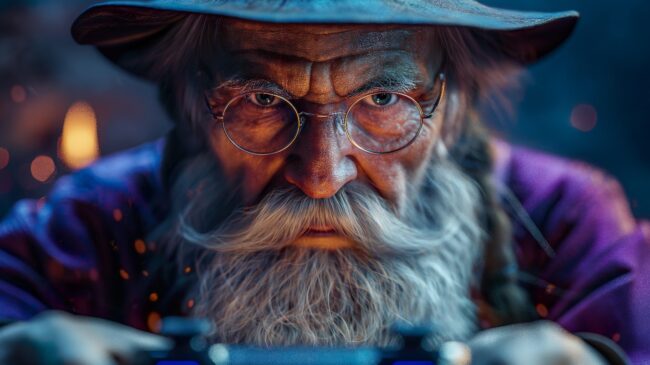Robert Caldwell of PA, like countless fans around the world, is eagerly awaiting the upcoming Harry Potter TV series. The announcement that the beloved book series would be reimagined for television has sent ripples of excitement through the Wizarding World’s vast fanbase. However, with this excitement comes a host of expectations and challenges that the show’s creators will need to navigate carefully.
The Weight of Expectations
The Harry Potter franchise is more than just a series of books and movies; it’s a cultural phenomenon that has shaped a generation. For many fans, the characters, settings, and plotlines are as familiar as their own lives. This deep connection means that any deviation from the source material will be closely scrutinized. The original movies, while widely loved, were not without their critics. Certain aspects of the books were omitted or altered, leading to debates among fans. The TV series offers a chance to address these concerns by adhering more closely to J.K. Rowling’s original vision, but it also runs the risk of alienating viewers who have grown attached to the cinematic versions.
Balancing Faithfulness with Innovation
One of the biggest challenges the series faces is striking the right balance between staying true to the books and introducing new elements that justify the remake. Fans will expect the series to capture the essence of the books—something that many felt the movies did not always accomplish due to time constraints. The episodic nature of a TV series, however, allows for a more in-depth exploration of the plot and characters.
This format could allow for entire chapters of the books, previously cut or condensed for the films, to be fully realized on screen. For instance, the intricacies of the Marauder’s Map and the backstories of characters like Remus Lupin and Sirius Black could be given the attention they deserve. The series might also explore the rich history of Hogwarts, the complexities of the Wizarding World’s politics, and the development of magical spells and creatures in more detail than ever before.
Casting Dilemmas
Casting is another area where the series will face immense scrutiny. The original cast of the Harry Potter movies became icons in their own right, and for many fans, Daniel Radcliffe, Emma Watson, and Rupert Grint are inseparable from their roles as Harry, Hermione, and Ron. The new series will have to find actors who can live up to these performances while bringing something fresh to the table.
Moreover, the series has the opportunity to address some of the criticisms of the original films, particularly in terms of diversity. The movies were often critiqued for their lack of representation, and a new adaptation could correct this by casting actors who better reflect the diversity of the Wizarding World. This could involve more inclusive casting for key roles or expanding the stories of characters like Cho Chang, Dean Thomas, and the Patil twins.
Expanding the Wizarding World
One of the most exciting possibilities for the TV series is the potential to expand the Wizarding World beyond what was depicted in both the books and the films. While the original story is centered around Harry and his friends, the series could delve into the lives of other characters and explore different parts of the magical universe.
For example, the story of the founders of Hogwarts—Godric Gryffindor, Salazar Slytherin, Rowena Ravenclaw, and Helga Hufflepuff—could be turned into a fascinating subplot. The series could also explore the magical communities in other parts of the world, providing a broader view of the Wizarding World that was only hinted at in the books. This would not only enrich the story but also provide opportunities for new characters and narratives to be introduced, keeping the series fresh and engaging for both new viewers and longtime fans.
Technical Challenges
Creating a Harry Potter TV series will also come with significant technical challenges. The magical elements of the story require a high level of special effects, and the quality of these effects will be crucial to the series’ success. The original movies set a high standard with their groundbreaking visual effects, and the TV series will need to match or surpass this to meet fan expectations.
Additionally, the show will need to create a consistent and immersive visual style that distinguishes it from the films while still feeling true to the world that J.K. Rowling created. This includes everything from the design of Hogwarts and other magical locations to the appearance of spells, creatures, and magical objects. With advancements in CGI and other technologies since the original movies were made, the series has the potential to bring the Wizarding World to life in ways that were previously impossible. However, this also means that the creators will need to be meticulous in their attention to detail to avoid breaking the immersion for viewers.
The Risk of Overexposure
While the prospect of a Harry Potter TV series is thrilling, there is also a risk that it could lead to overexposure of the franchise. With the original movies, theme parks, and the Fantastic Beasts film series already expanding the Wizarding World, some fans worry that a new series could dilute the magic that made Harry Potter so special in the first place. The challenge for the creators will be to deliver a series that feels fresh and necessary, rather than just another attempt to capitalize on the franchise’s enduring popularity.
A New Era for Harry Potter
The Harry Potter TV series represents both a daunting challenge and a thrilling opportunity. If done right, it could breathe new life into the franchise, offering fans a richer and more nuanced exploration of the world they love. However, it will require careful handling to meet the high expectations of a global fanbase while also appealing to new audiences. As the series progresses from concept to reality, fans like Robert Caldwell of PA will be watching closely, hopeful that this new adaptation can cast the same spell that first enchanted the world over two decades ago.
